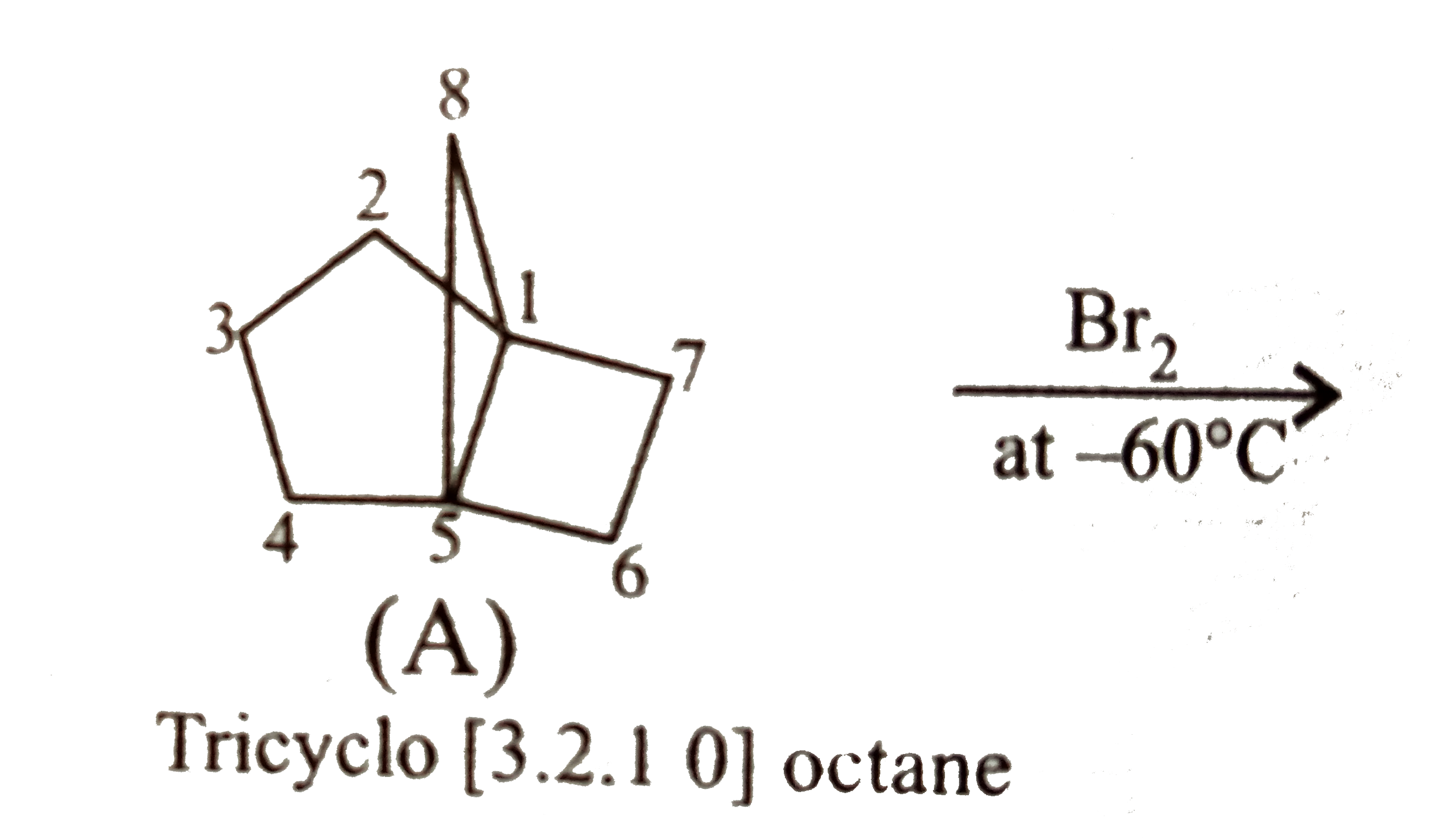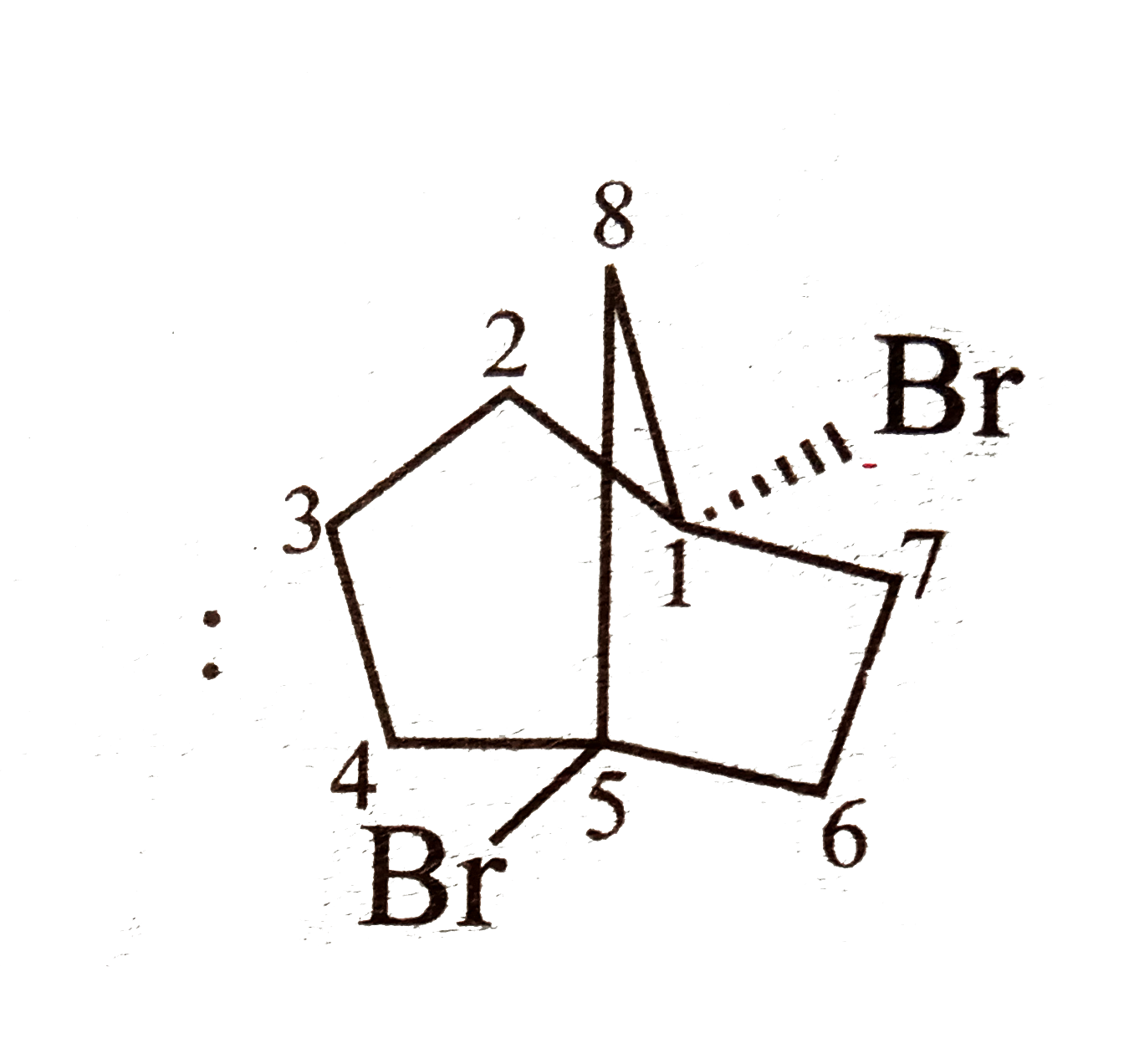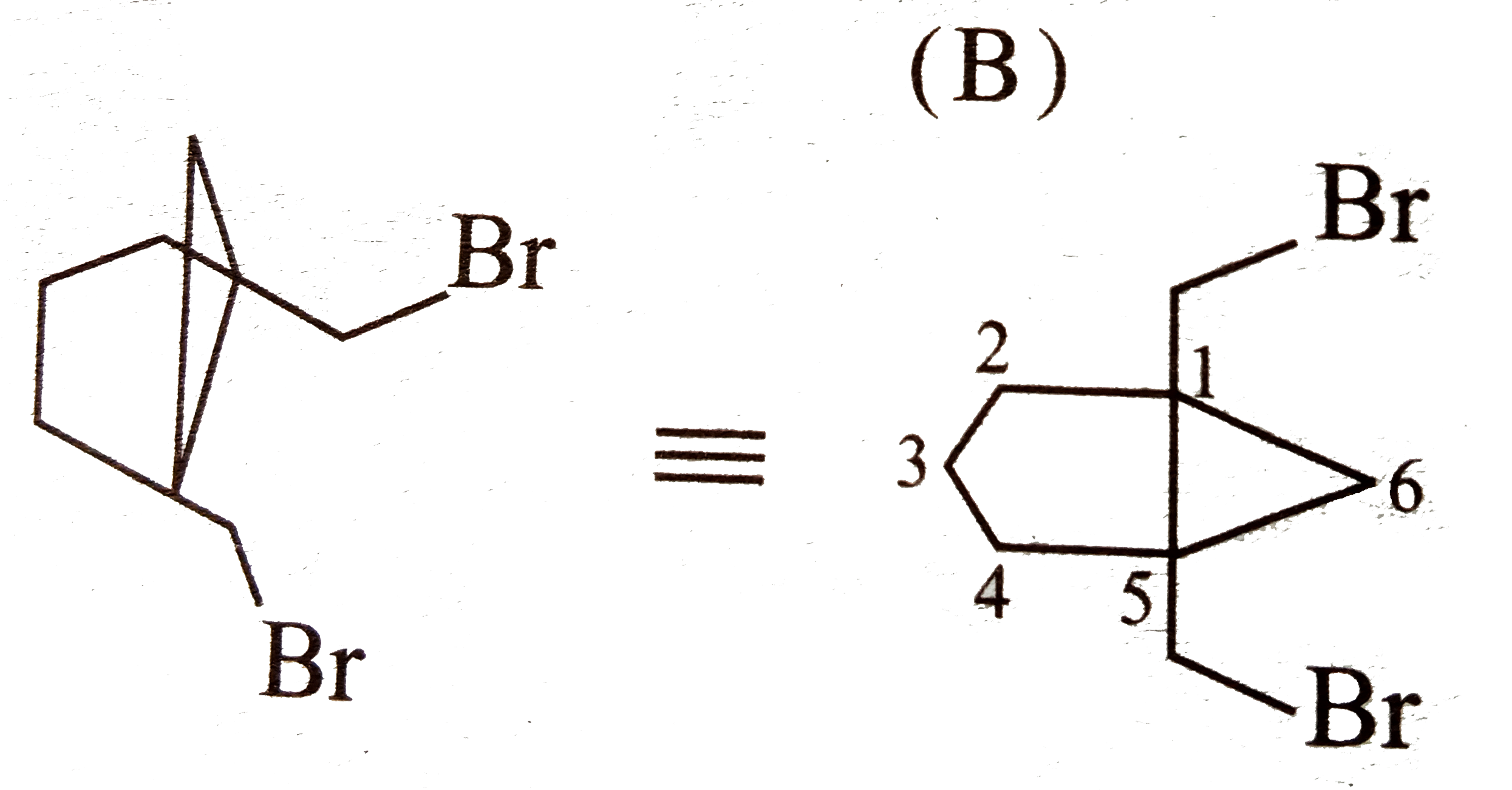Which of the following statements is/are correct ?

A
(a) The product is (A)

B
(b) 
C
(c) The product (A) is favourable because the strain of both three- and four-membered rings is relieved.
D
(d) The product (B) is favourable because the strain of four-membered ring in relived.
Video Solution
Text Solution
The correct Answer is:A, C
Point (c) is self-explanatory.
|
Topper's Solved these Questions
- ALKANES AND CYCLOALKANESBOOK - CENGAGE CHEMISTRYCHAPTER - ALKANES AND CYCLOALKANESEXERCISE - Single Correct
45 Videos
- ALKANES AND CYCLOALKANESBOOK - CENGAGE CHEMISTRYCHAPTER - ALKANES AND CYCLOALKANESEXERCISE - Archives
13 Videos
- ALKANES AND CYCLOALKANESBOOK - CENGAGE CHEMISTRYCHAPTER - ALKANES AND CYCLOALKANESEXERCISE - Reasoning and Assertion
2 Videos
- ALKENES AND ALKADIENESBOOK - CENGAGE CHEMISTRYCHAPTER - ALKENES AND ALKADIENESEXERCISE - Single correct Answer
14 Videos
Similar Questions
Knowledge Check
Which of the following statement is/are correct?
AThe diagonals of a rectangle are perpendicularBThe diagonals of a rhombus are equalCEvery square is a rhombusDNone of theseWhich of the following statement is/are correct ?
AS2O−82− oxidises Ag+ in presence of pyridine and give red colour compoundBMnO2−4 disproportionates to yield MnO−4 and MnO2 in presence of H+ ionsCIn Cr2O2−7 each Cr is linked to four oxygen atomsDTi2+ is coloured while Ti4+ is colourless in aqueous solutionWhich of the following statement is/are correct
AS2O−82− oxidises Ag+ in presence of pyridine and give red colour compoundBMnO2−4 disproportionates to yield MnO−4 and MnO2 in presence of H+ ionsCIn Cr2O2−7 each Cr is linked to four oxygen atomsDTi2+ is coloured while Ti4+ is colourless in aqueous solution
Which of the following statement is/are correct?
View SolutionWhich of the following statement is/are correct
View SolutionWhich of the following statement is /are correct
View SolutionWhich of the following statement is/are correct
View SolutionWhich of the following statement is (are) correct?
View Solution
